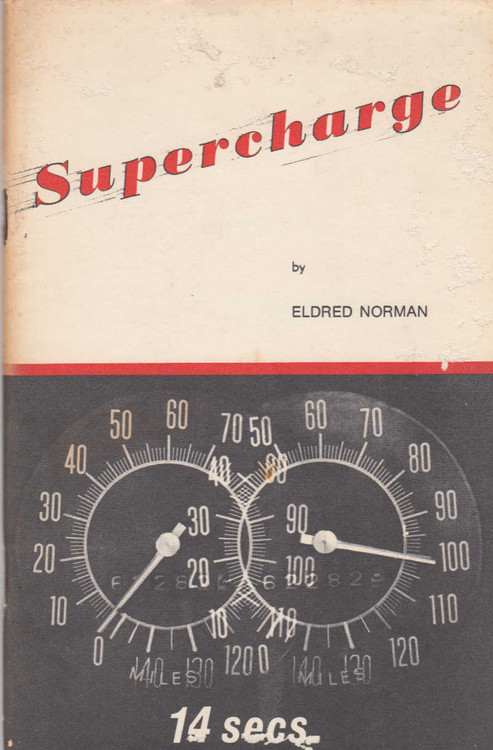Description
Author: Eldred Norman, Softbound, 49 Pages - First published, 1969 **VERY RARE BOOK IN EXCELLENT CONDITION**
FOREWORD
I am often asked "but why do you want more power, my Holden has more power than I can use already." It is often amusing to question the questioner:—
Me: "What model Holden do you drive?"
Questioner: "A 186 X2."
Me: "Why not a 161?"
Questioner: "Well I like a bit of extra performance."
One thing you can be sure of. That man's next car will be a five litre V8, if he can afford it. And he is typical. GMH know it, Chrysler know it, and so do Ford know it. We may all of us deplore it—in the other man. But everyone wants a bit more power in his next car, particularly if it can be had at no extra cost.
And is it a bad thing? It is no coincidence that the most underpowered cars on the market are the ones with the highest accident rate. The driver of this type of car tends to keep it rolling once it is rolling because accelerating is a slow process. This means he occasionally takes chances rather than slow down. The man with ample power in reserve takes less chances, he knows that he can 'make time' later when circumstances are more favourable.
I think it is important at this stage to draw a distinction between speed and acceleration. Since it is generally accepted that the faster we go the worse the accident if we come to a very sudden stop. And since brakes and reaction times are not able very often to cope adequately with reductions in speed, speed 'per se' must be a major factor in accidents and is therefore to be condemned if carried to extremes; and the law has quite rightly set fixed standards for particular circumstances.
These are not necessarily right but they are at least a guide to a group of people who inevitably would have differences of opinion on the matter.
Acceleration is a different matter. The process of driving consists of accelerating and decelerating. The advent of four wheel brakes was rightly hailed as a contribution to road safety. The ability to reduce speed quickly has prevented many accidents. Now since driving is a dual process it follows that to be able to accelerate very quickly can also help to reduce accidents.
I think everyone will agree that when overtaking, that period when the two vehicles are abreast is the most dangerous. If it takes 15 seconds to pass a semi-trailer the period of danger is three times as great as if only 5 seconds are involved. To take an extreme case. If it took an hour to pass a vehicle an accident would be almost inevitable.
...from author's foreword.









